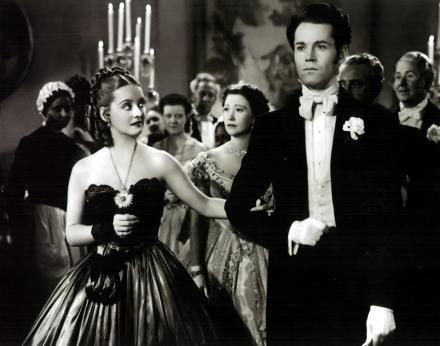
 |
| Photo © 1938 Warner Bros. Pictures |
| Best Picture | |
| ★ | Best Actress: Bette Davis |
| ★ | Best Supporting Actress: Fay Bainter |
| Best Cinematography: Ernest Haller | |
| Best Original Score: Max Steiner |
| Venice Film Festival: Special Recommendation for Overall Artistic Contribution (Wyler) |
| Permalink | Home | 1938 | ABC | Blog |